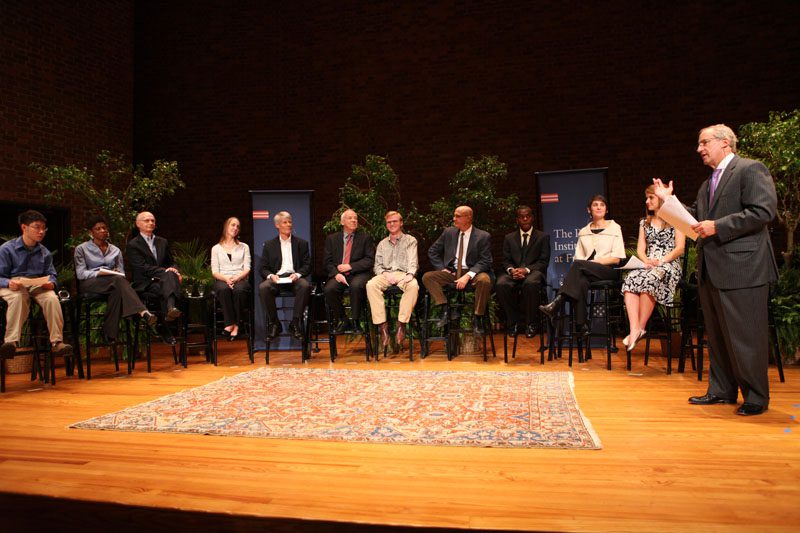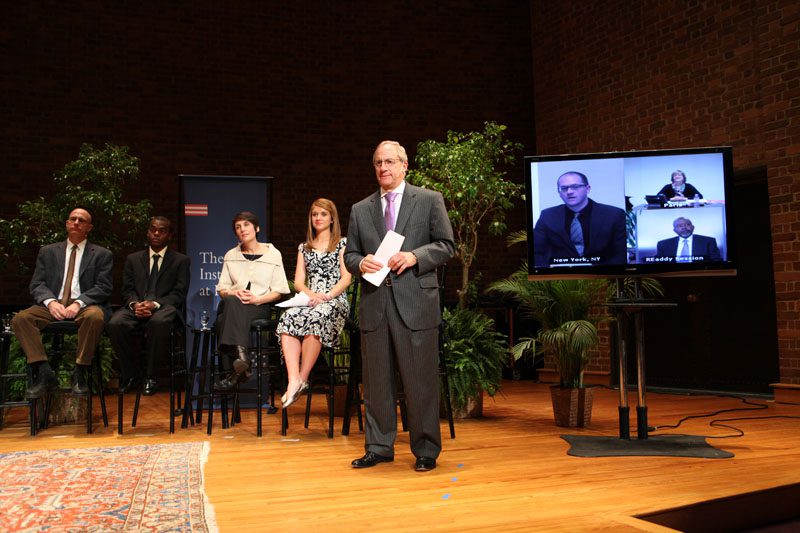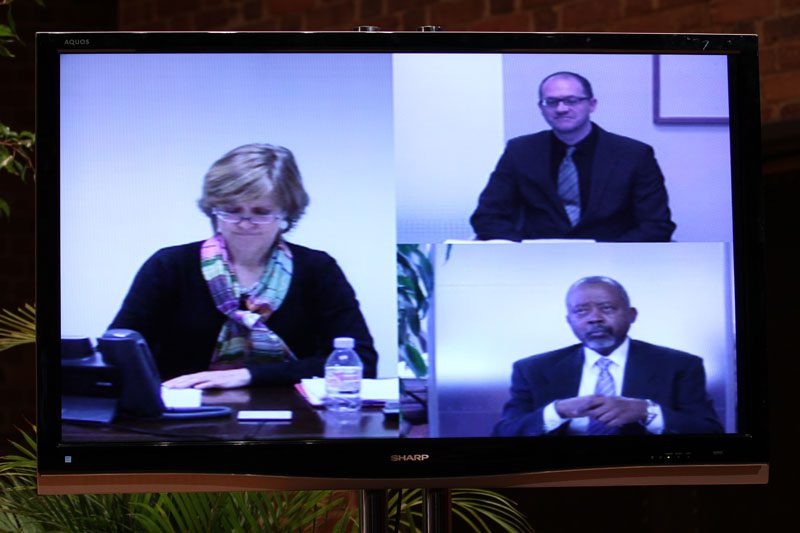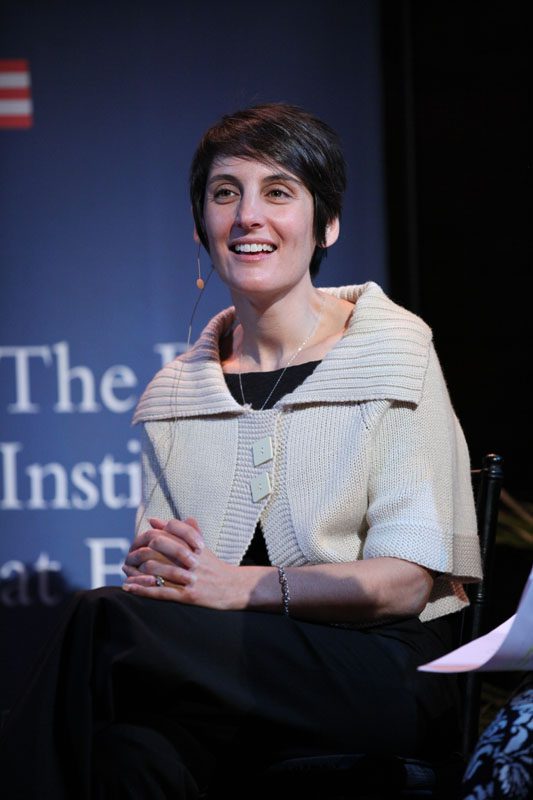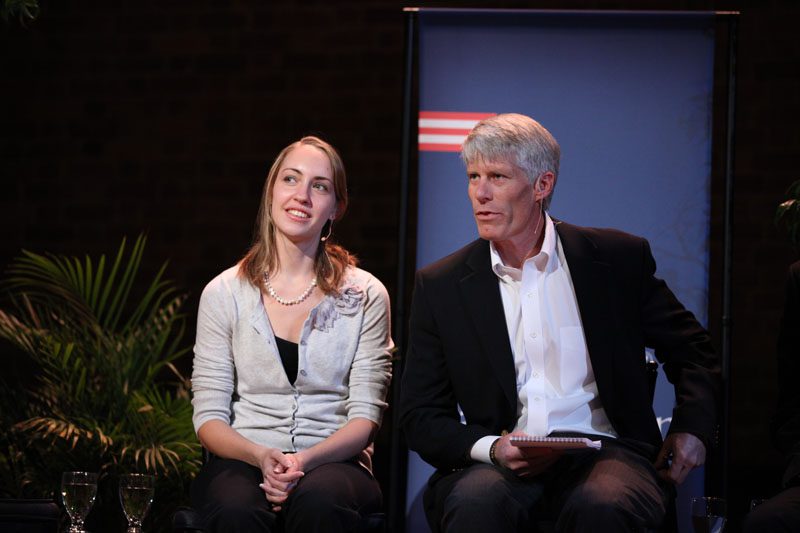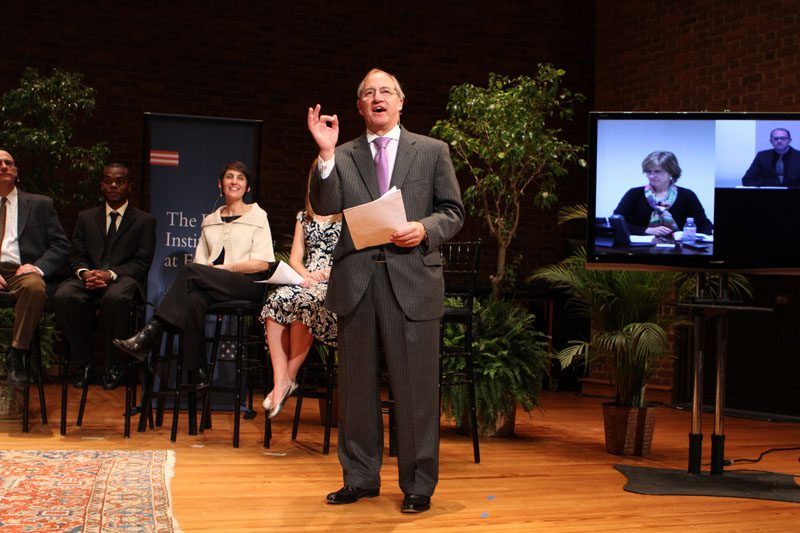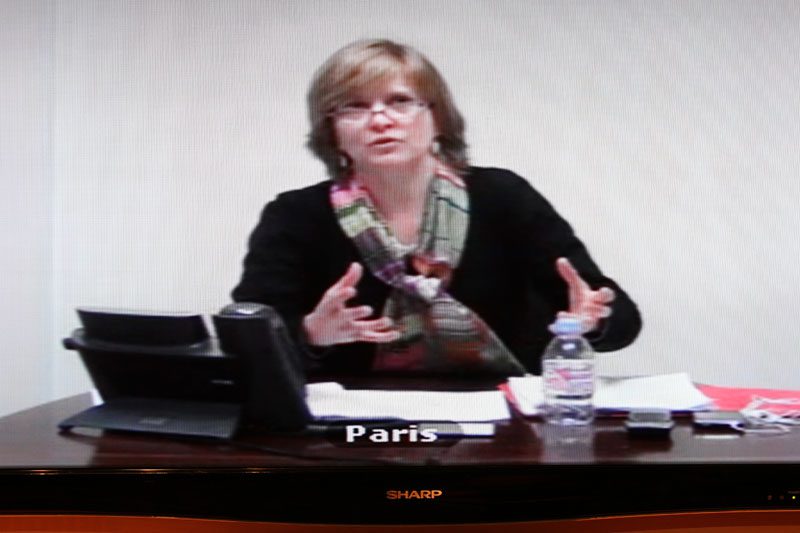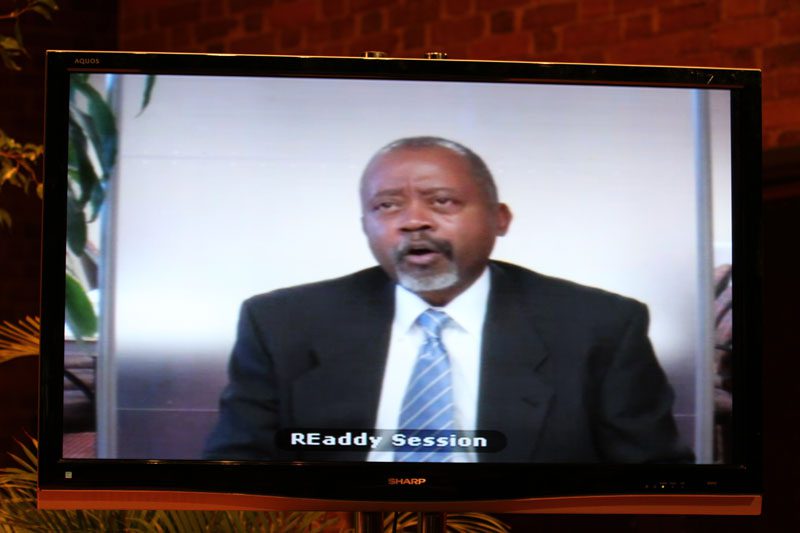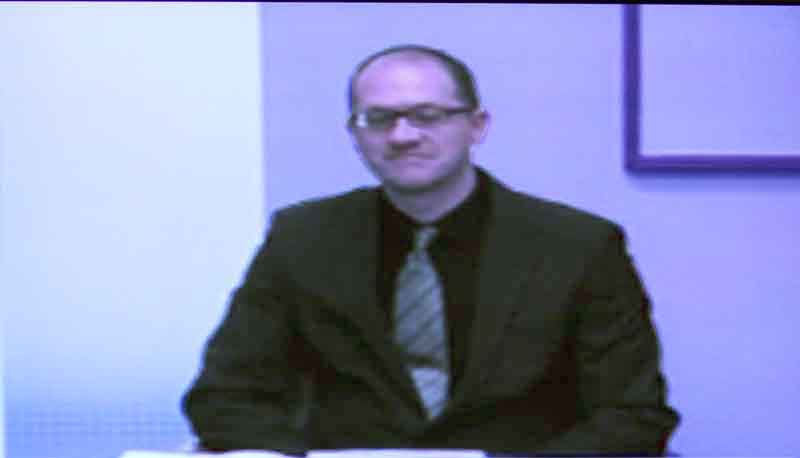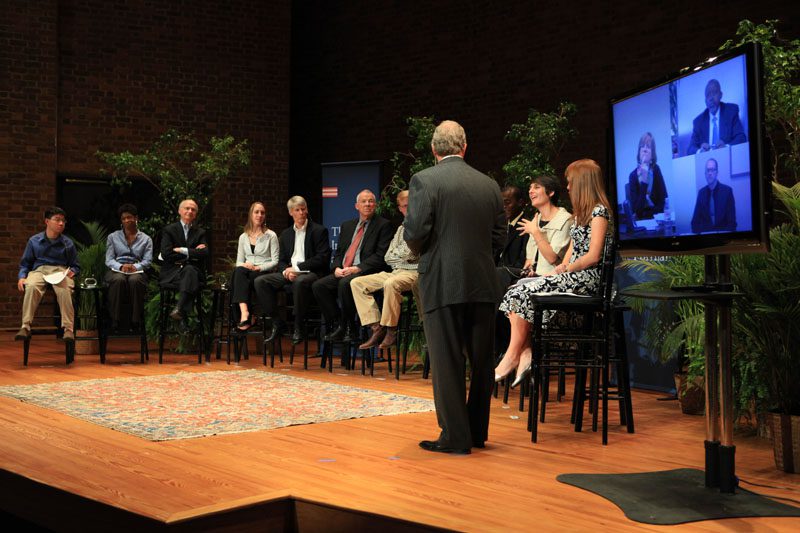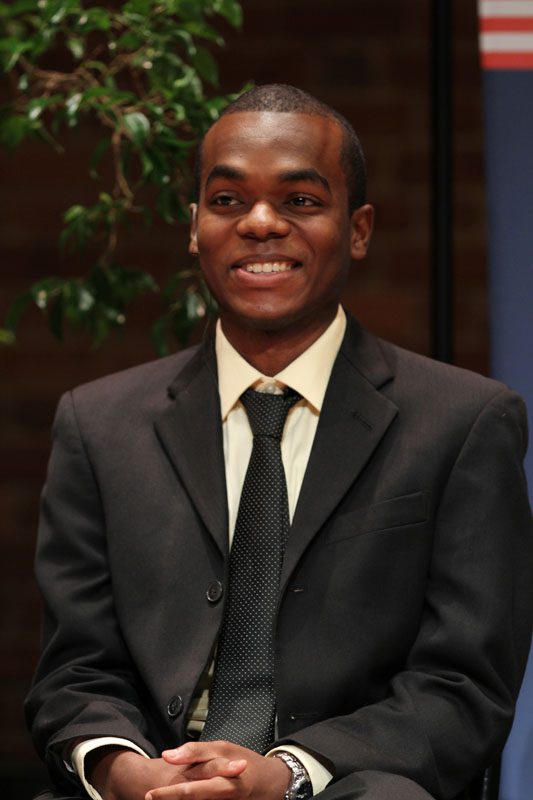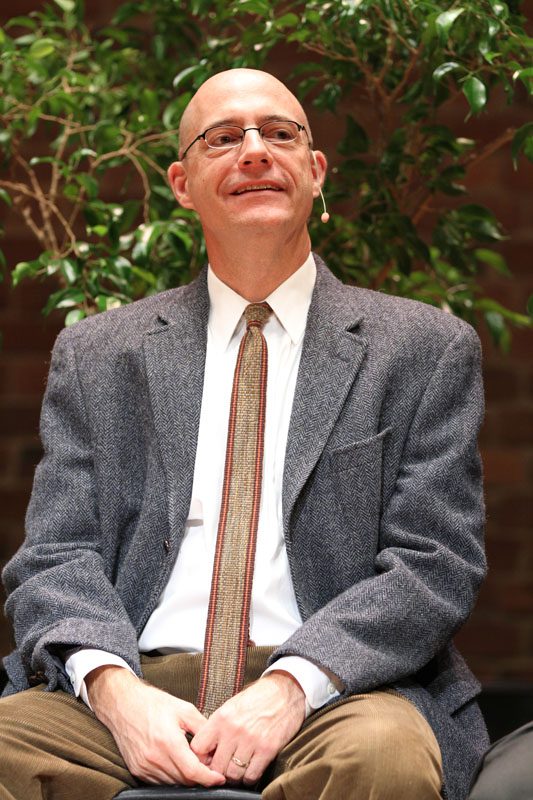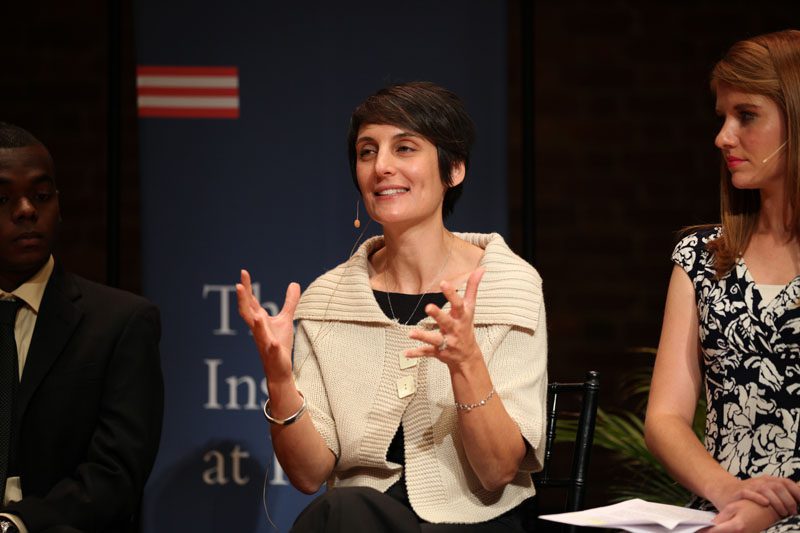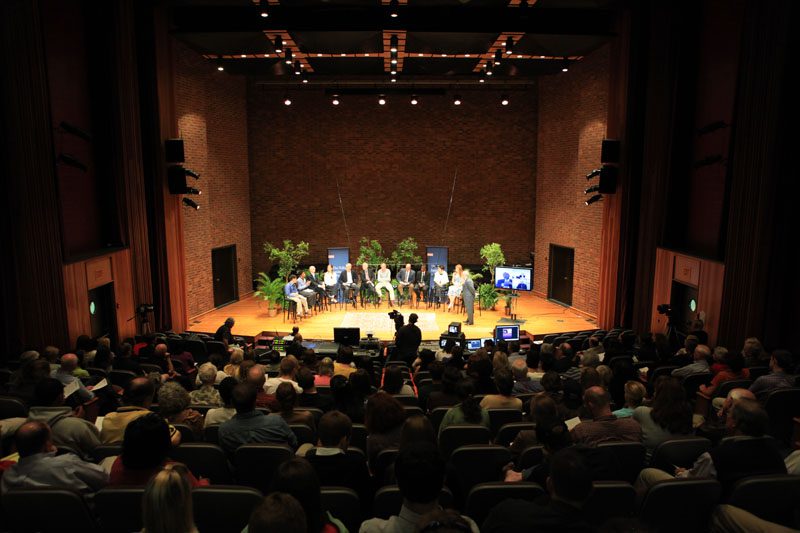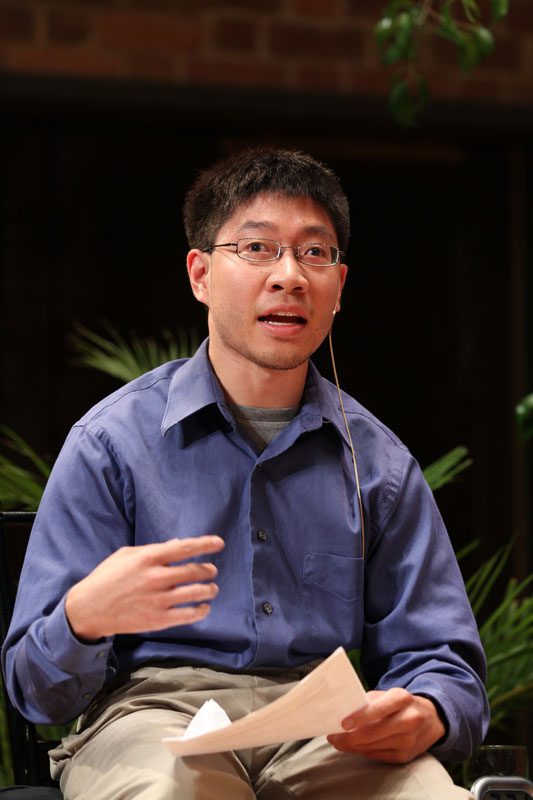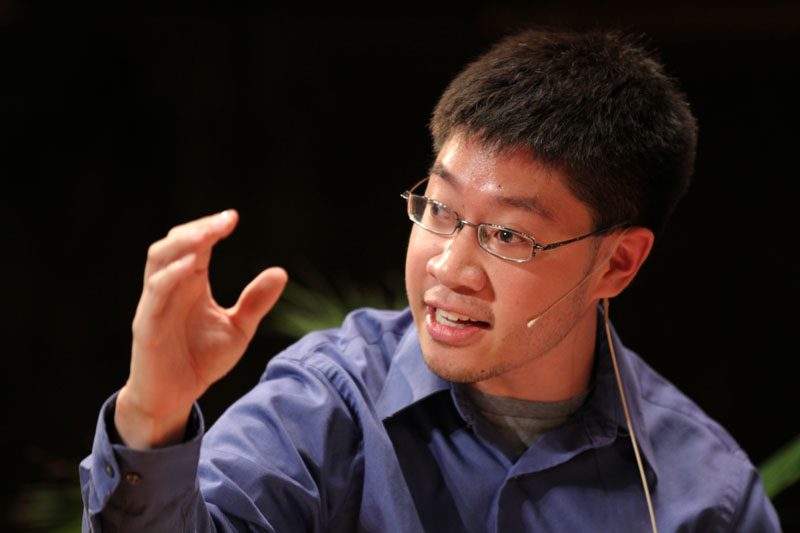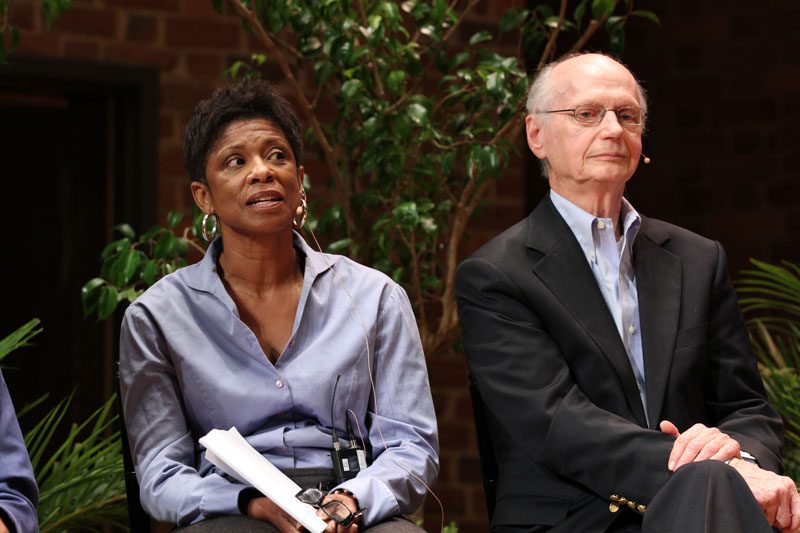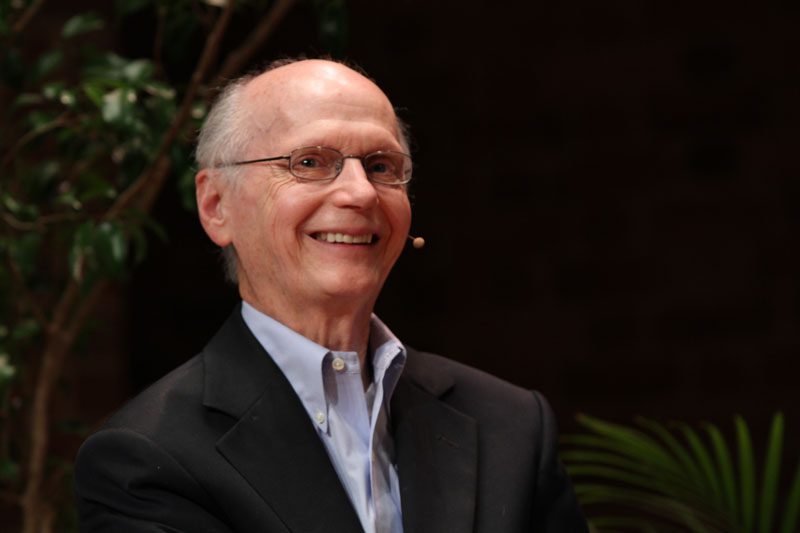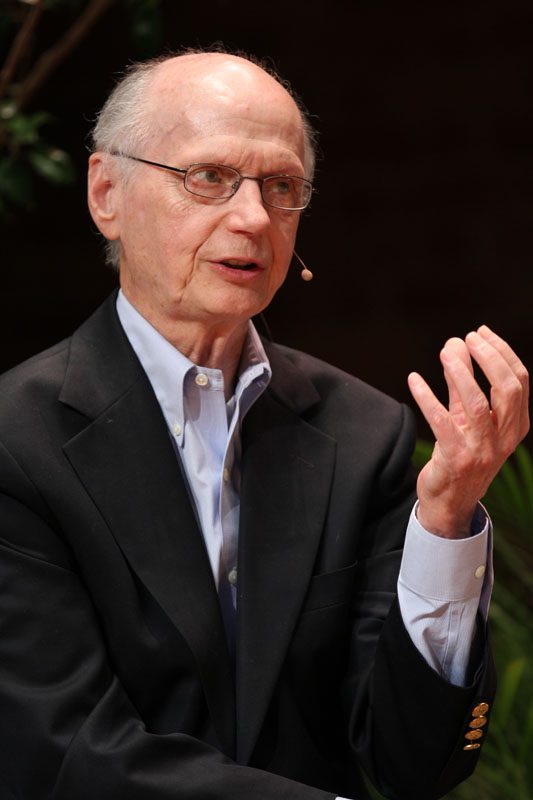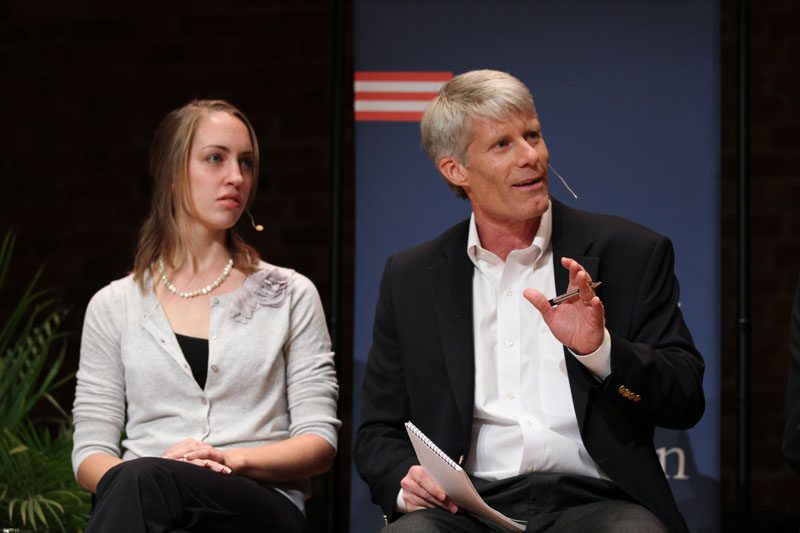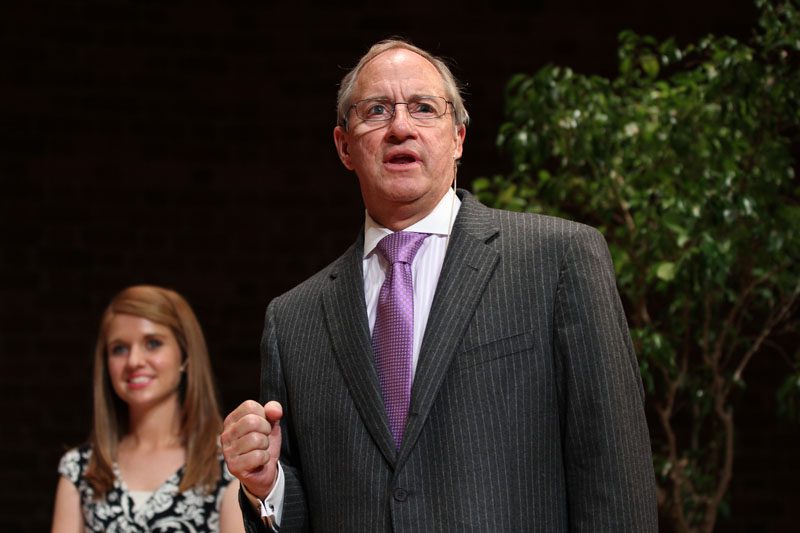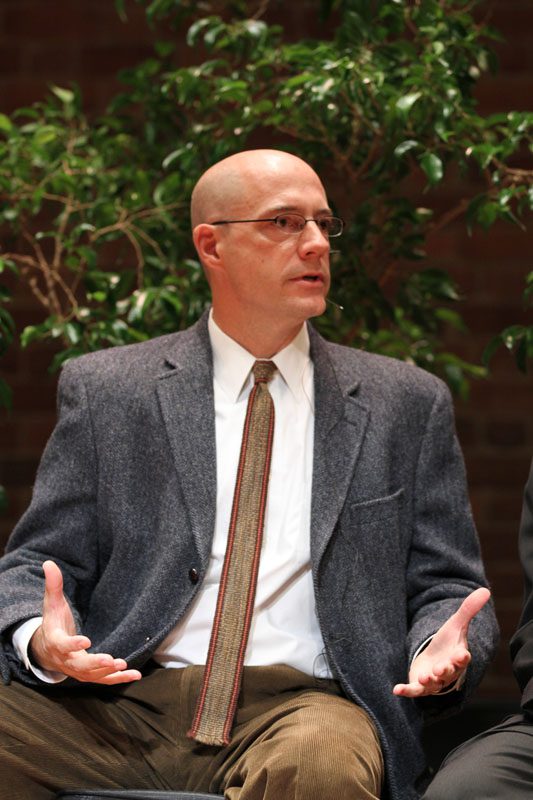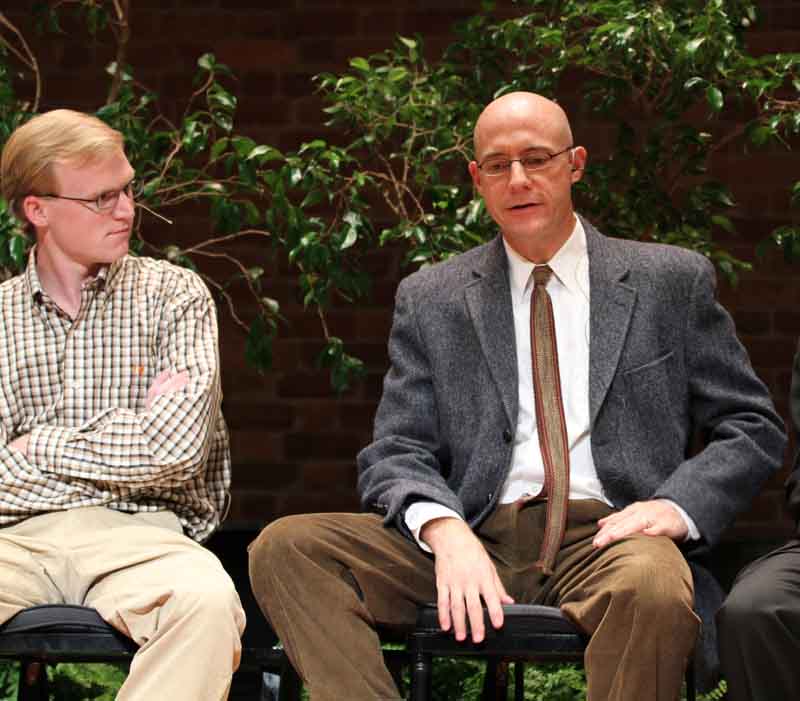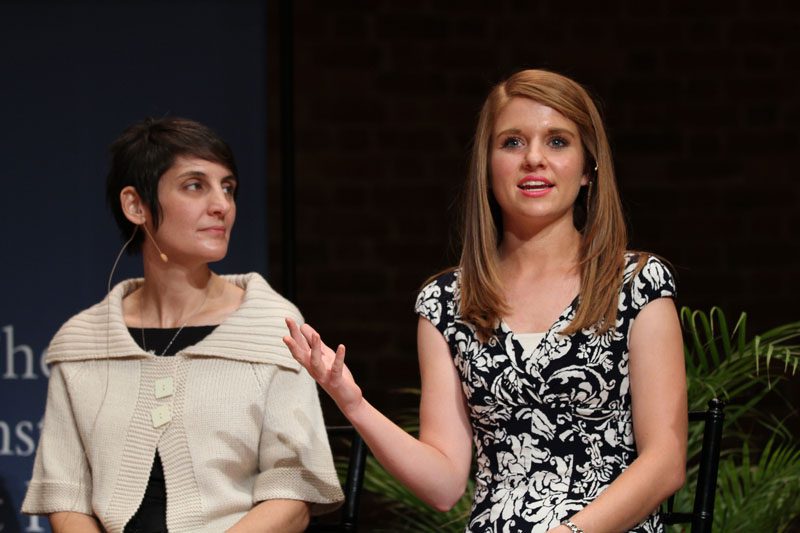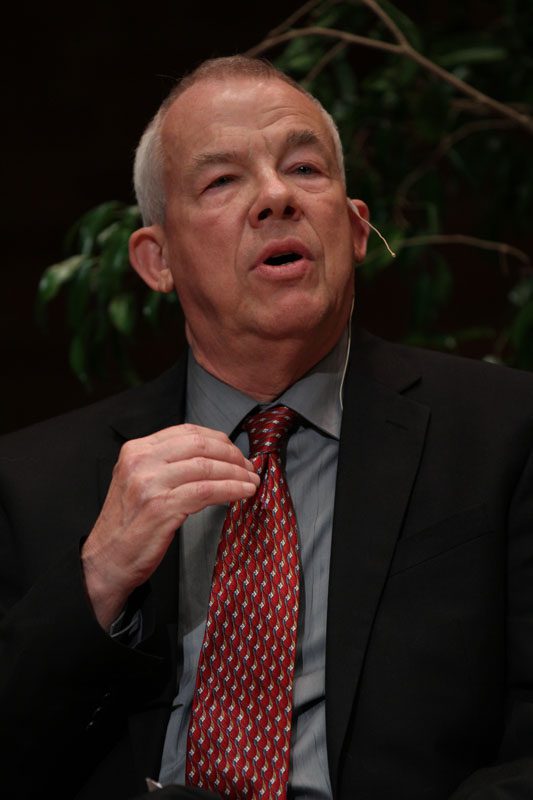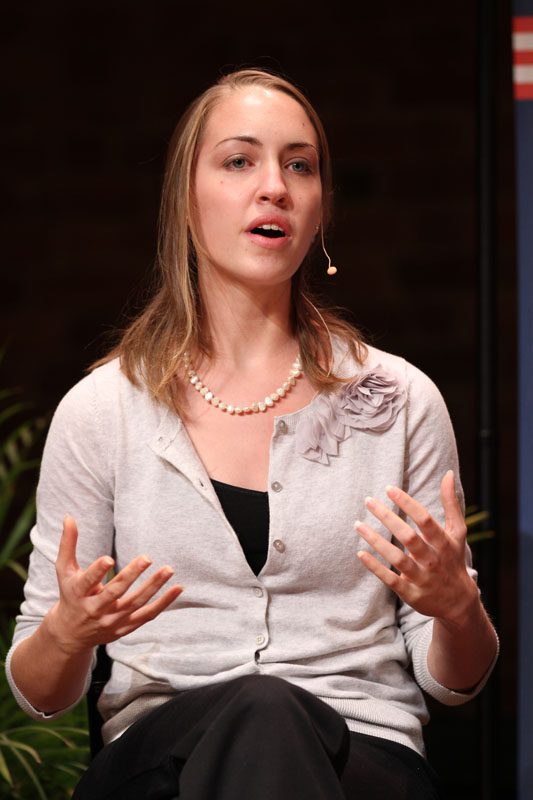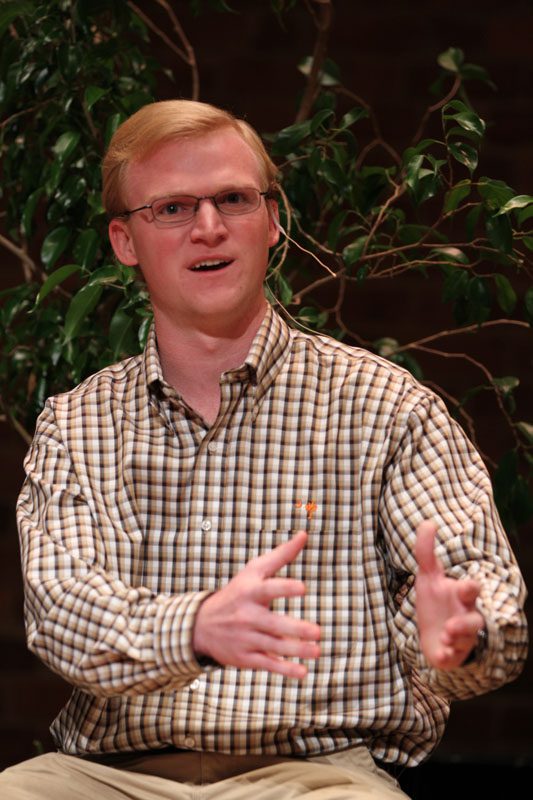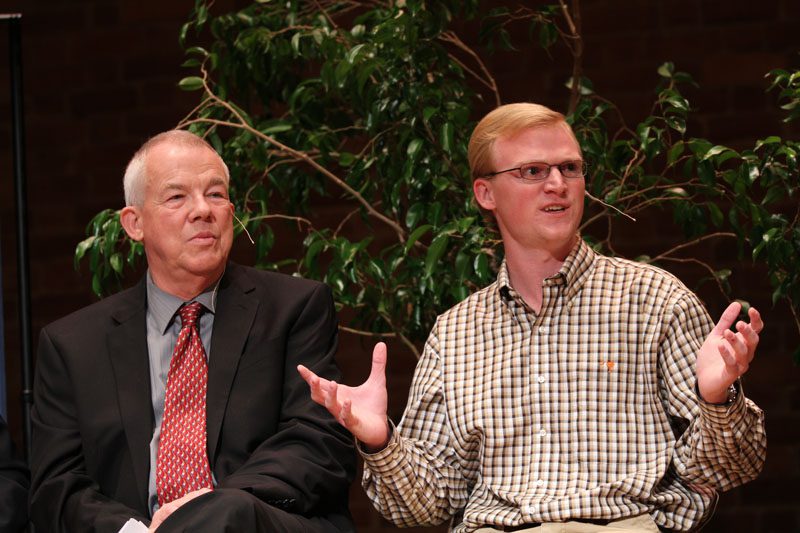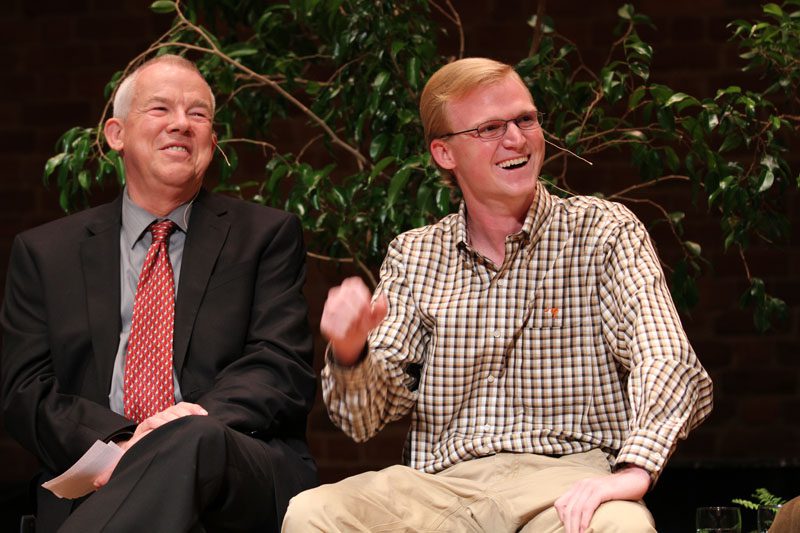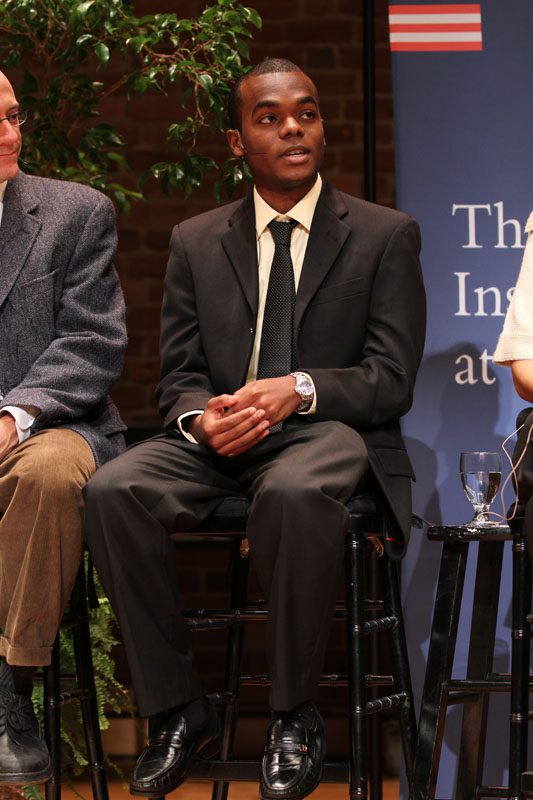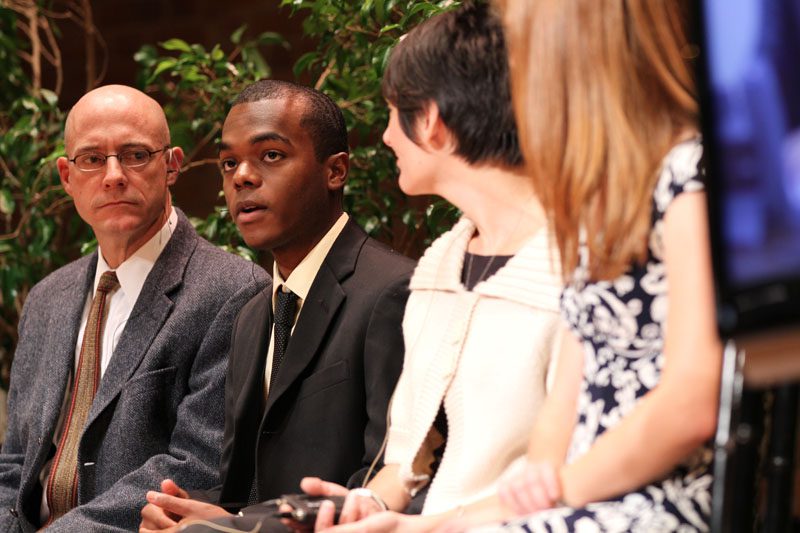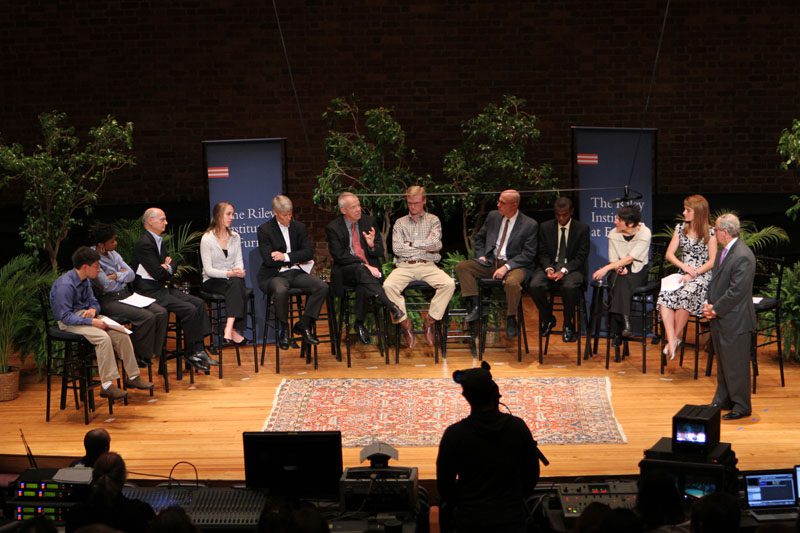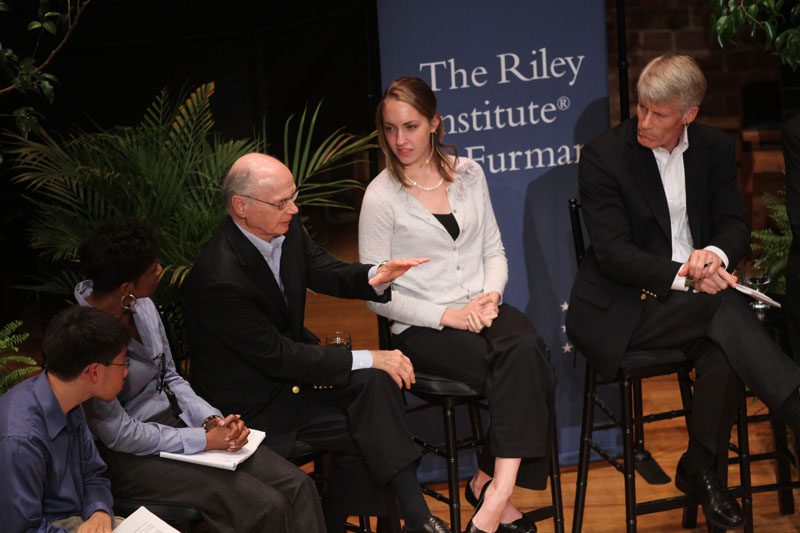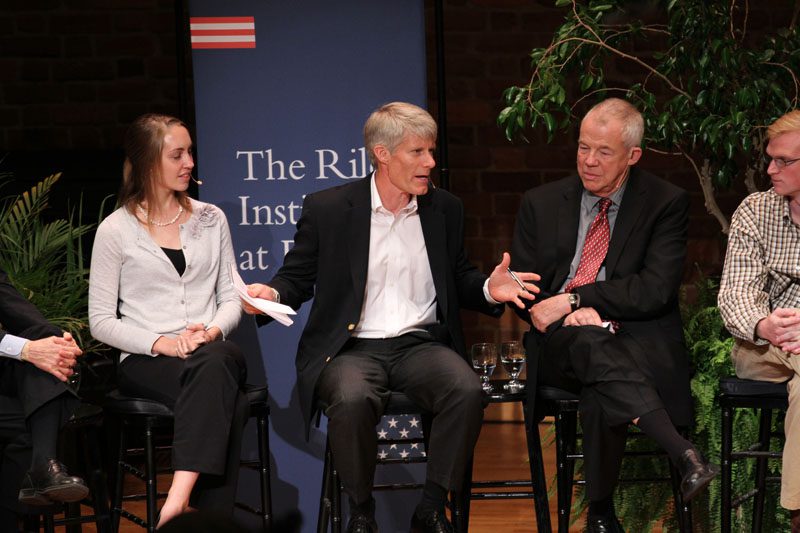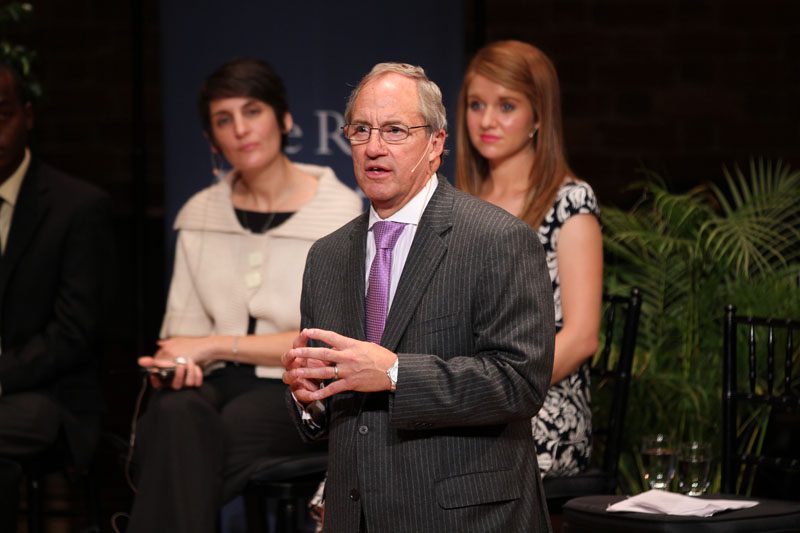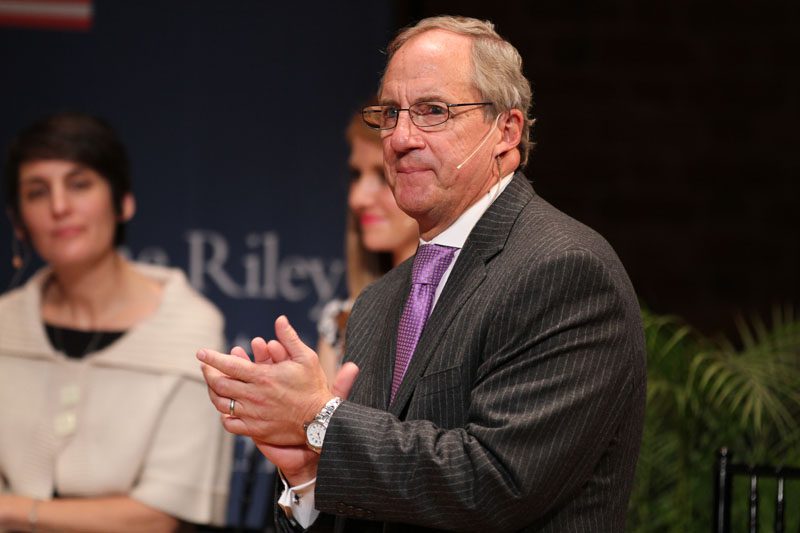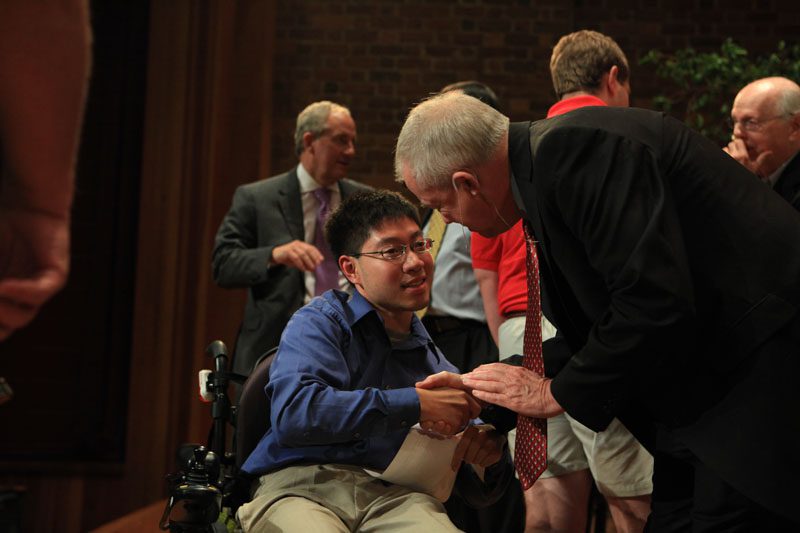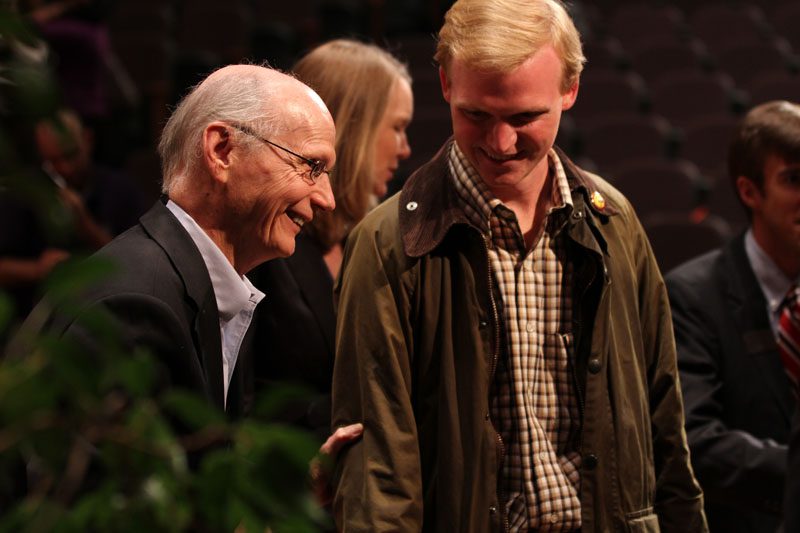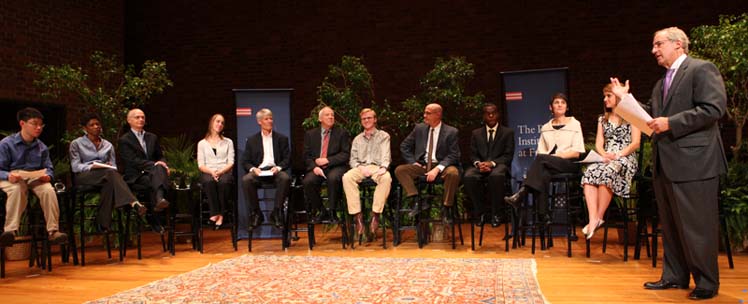
American Politics and Policy
Civility in Public Discourse
October 21, 2010
Why is it that the focus of today’s public discourse seems to be on “winning” rather than considering differing viewpoints? Social media, such as Twitter and blogging, as well as talk radio and cable television, exacerbate the problem. Is this something that should concern us? What can we do as a Furman community to improve the quality of public discourse?
Furman students, faculty, alumni, and trustees discussed these issues with President Rod Smolla during a lively conversation on Thursday, October 21, 2010, at Furman University in Daniel Recital Hall. Participating were eleven on-stage panelists as well as Furman alums Eleanor Beardsley (NPR Paris), Carl Sullivan (MSN.com), and legal scholar and civic leader, Randy Eaddy, via teleconference. For a list of participants and brief biographies, click here.
To view this event, click here.
Unfortunately, our public discourse is no longer about an exchange of ideas, but rather has become an “echo chamber,” with folks interested in hearing only their own voice or voices just like theirs, Carl Sullivan observed. Moreover, Eleanor Beardsley and Randy Eaddy contended, the issue is not limited to how people interact with each other when they disagree but is complicated by an underlying lack of integrity in choosing what one presents as facts. Nowadays, Beardsley quipped, it is “chic to be ignorant.”
Trustees Richard Riley and George Johnson and professors Beth Pontari, Brent Nelsen, David Gandolfo, and Cynthia King pointed out that in order to have value and civility, public discourse must include a high regard for accuracy of information and a fundamental attitude of good will and good sense. The focus of public discourse needs to shift from narcissism to a posture of humility. Humility is essential, as one must consider the possibility that maybe, just maybe, he or she is wrong.
Furman students Brann Fowler, Katie Fearington, Michael Chiu, Brandon Tensley, and Shannon Cantwell were also concerned about the state of public discourse today and suggested college students can be part of the solution by keeping an open mind and using the college experience as a time to expand their views. They recognize that communication is complex, and in public discourse it is important to consider context and think critically.
As Furman students pursue opportunities to be good citizens, present facts with integrity, and consider others’ perspectives with good will, good faith, and common sense, they can lead the way in moving public discourse to a place of civility.

